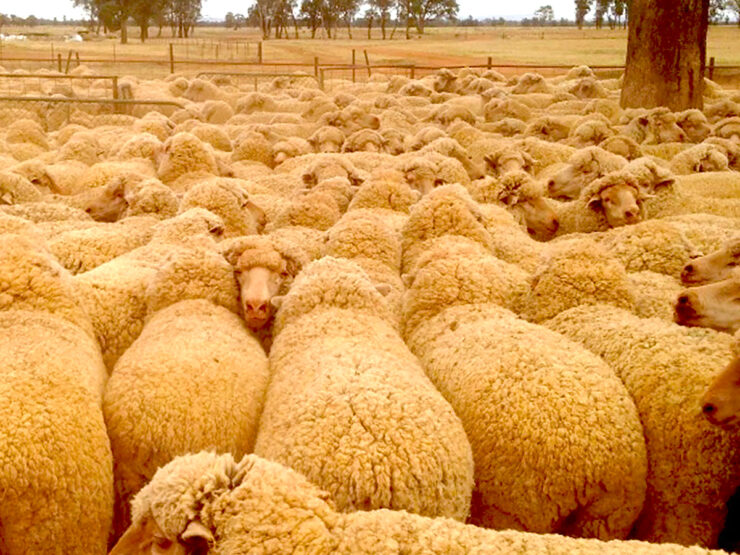It’s the ability to target the meat and wool markets that has kept Kikoira sheep producer Philip Hill loyal to One Oak Poll bloodlines for more than three decades.
Philip and Vicki and their sons Ryan and Andrew run about 2000 Merino ewes on about 2440 hectares of mixed farming country with a 425-millimetre average rainfall.
He has always known his sheep have dual purpose characteristics, but the operation has proof that this is more than just talk.
Philip has a stake in the meat industry .and has their White Suffolk-Merino lambs processed in an abattoir in Cowra, with the lambs then butchered and sold direct to consumers.
While the White Suffolks play their terminal role, Philip said “half the genetics still come from the ewe” which makes it essential that his breeders carry strong meat traits.
“I’ve seen what One Oak Poll has done with their sheep and while they had good sheep to start with, they have improved the hindquarters even more,” Philip said.
“You have to pay tribute to Alastair and Natasha, and Alastair’s father Graham, and their classer Michael Elmes who really do the hard work in giving us genetics that we need.
“I reckon we do the easy bit as we just use those genetics, and they are the ones who are making a huge effort.”
The meat business has been a lucrative offshoot of the main Merino line of sheep run on the Hill’s property Pynvue, selected by his grandparents in the early 1900s.
The overall joining comprises 1200 Merino ewes joined to the One Oak Poll Merino rams, and then 800 Merino ewes joined to White Suffolk rams.
Those joined to the terminal sire were originally those classed out from the main Merino line, but Philip said it was becoming increasingly difficult to find sheep that needed to be taken out.
“I think we are seeing the results of the work down in the One Oak Poll flock, and how that is flowing through to our sheep which are always getting better,” he said.
When it comes to buying rams, Philip said they had a budget that they stuck to, and often the ones that had the double ticks next to them in the catalogue went beyond their price range.
While it is reassuring to know that he likes the same rams that others do, Philip said it was still possible to pick sires that had what he was looking for – great hindquarters, excellent constitutions, the ability to survive in tough conditions and good wool. They must be easy care sheep which he said the One Oak Poll sheep were, and it’s seen in the lack of body strike in adult sheep.
Michael Elmes helps with the ram selection, picking sires that will suit the dual-purpose nature of the flock.
“We tend to select rams around the 19-20-micron mark, and our adult sheep are cutting eight kilograms of 20-micron wool and our lambs are finer,” Philip said.
“This is a medium wool operation that also has an emphasis on meat, and the rams we buy allow us to do that.”
The success of the livestock operation has the Hills moving more of their country into livestock and less into cropping, believing it is a safer bet than outlaying money to grow wheat and canola.











